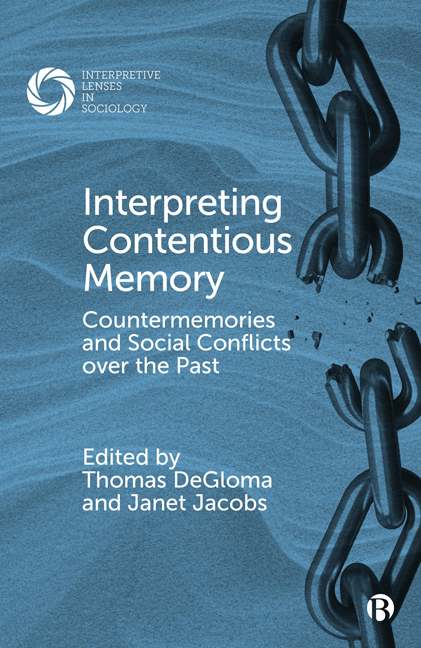Book contents
- Frontmatter
- Contents
- Series Editors’ Preface: Interpretive Lenses in Sociology – On the Multidimensional Foundations of Meaning in Social Life
- Notes on Contributors
- Acknowledgments
- 1 Introduction: Interpreting Contentious Memories and Conflicts over the Past
- PART I Interpreting Memories in the Social Dynamics of Contention
- PART II Racism, Exclusion, and Mnemonic Conflict
- PART III Genocide, Memory, and the Historicizing of Trauma
- Index
4 - Mobilizing Memories: Remembrance as a Social Movement Tool in the Vieques Anti-Military Movement (1999–2004)
Published online by Cambridge University Press: 20 January 2024
- Frontmatter
- Contents
- Series Editors’ Preface: Interpretive Lenses in Sociology – On the Multidimensional Foundations of Meaning in Social Life
- Notes on Contributors
- Acknowledgments
- 1 Introduction: Interpreting Contentious Memories and Conflicts over the Past
- PART I Interpreting Memories in the Social Dynamics of Contention
- PART II Racism, Exclusion, and Mnemonic Conflict
- PART III Genocide, Memory, and the Historicizing of Trauma
- Index
Summary
In 2004 the community of Vieques, Puerto Rico witnessed the last chapter of a struggle that unfolded over the previous 60 years – the official closing of the US Navy station and target range, Camp Garcia. The closing of the base came after an intensive five-year protest mobilization manifesting in a diversity of sectors across the archipelago of Puerto Rico. However, this mobilization was most prominently known via its local consolidation as the Vieques Movement. The Movement's claim for ending the military presence in the municipal island focused on three core issues – stopping all live ammunition practices (the regular occurrence of bombing), permanently closing the target range and military station, and returning the land to civilian control. The Vieques Movement deployed a multiplicity of protest tactics to challenge the military institution and sustain popular mobilization – civil disobedience, marches, picket lines, letter writing campaigns, as well as congressional lobbying. As the movement unfolded, activists also engaged in the more subtle process of articulating community members’ experiences of the military presence, experiences centered on their perceptions of the past. This was more than a storytelling exercise focused on the impact of military presence; this was an exercise in personal remembrance as a way of making and conveying collective memory. Upon close examination, storytellers intended to re-present the military presence experience in a new light, one that casts the military base and military operations as a source of grievance, conflict, and trauma. How are the memories of residents’ experiences with the military related to the narratives for mobilization activated by movement actors? What influence, if any, did this remembrance exercise over the mobilization against the military? In what ways, if any, were notions of the past challenged here?
In this chapter, I explore the Vieques Movement via local narratives of the military presence using an approach that elucidates the role of memory – and the links between personal and collective memory – in the social movement mobilization processes. I analyze embedded remembrance structures – mnemonic signifiers that serve as rich sources of meaning – for their activation capacity and significance to narratives of mobilization (Vélez-Vélez, 2013). The goal is that of approaching the mobilization process from the standpoint of memory and remembrance.
- Type
- Chapter
- Information
- Interpreting Contentious MemoryCountermemories and Social Conflicts over the Past, pp. 69 - 88Publisher: Bristol University PressPrint publication year: 2023



